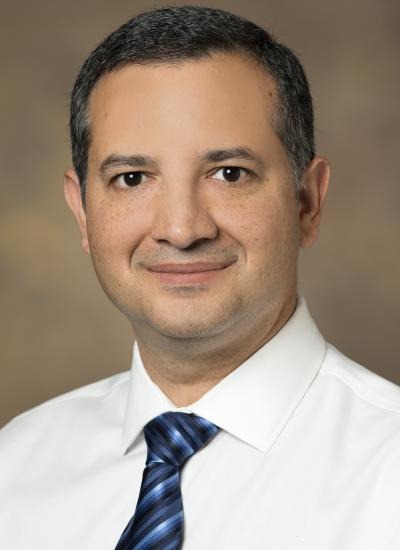Brain
Francesca Vitali
Work Summary
Francesca Vitali, PhD, research interests are in precision medicine, bioinformatics, artificial intelligence and big data techniques.
Research Interest
Kathleen Rodgers
Research Interest
Paulo Pires
Work Summary
Dr. Pires is an Assistant Professor and Principal Investigator in the Department of Physiology, University of Arizona College of Medicine Tucson. Dr. Pires received his Ph.D. in Pharmacology and Toxicology at Michigan State University and completed his training as a Postdoctoral Fellow at the University of Nevada, Reno School of Medicine. Throughout his career Dr. Pires has published numerous research articles on the impact of chronic cardiovascular diseases in development of cerebral vascular disorders, such as ischemic strokes, as well as mechanisms regulating cerebral vascular function. In his laboratory, Dr. Pires' research focuses on the vascular component underlying neurodegenerative diseases, such as cerebral amyloid angiopathy and Alzheimer's diseases, as well as the brain waste clearance system, the glymphatic / cervical lymphatic system.
Research Interest
Kaveh Laksari
Work Summary
https://www.engr.arizona.edu/~klaksari/
Research Interest
Linda L Restifo
Research Interest
Jonathan Lifshitz
Work Summary
Jonathan Lifshitz's research questions primarily investigate traumatic brain injury as a disease process that dismantles, repairs and regenerates circuits in the brain. The underlying principle is that adaptive repair and regeneration fail, leaving a miswired brain and neurological impairments that decrease quality of life.
Research Interest
Charles M Higgins
Research Interest
Meredith Hay
Work Summary
Our lab is focused on the development of novel peptides to inhibit this inflammatory cascade and improve brain blood flow. These peptides are designed to significantly improve serum half-life and penetrate the blood-brain-barrier. These peptides act to inhibit the inflammatory pathways at both the level of brain blood vessels and the brain itself.
Research Interest
Katalin M Gothard
Work Summary
The broad goal of Katalin Gothard's research is to understand the neural basis of emotion and social behavior. Her lab work reveals the real-time dynamic interactions in multiple systems implicated in emotion regulation and the mechanisms by which emotional responses produce immediate behavioral effects.
Research Interest
Pagination
- Page 1
- Next page











